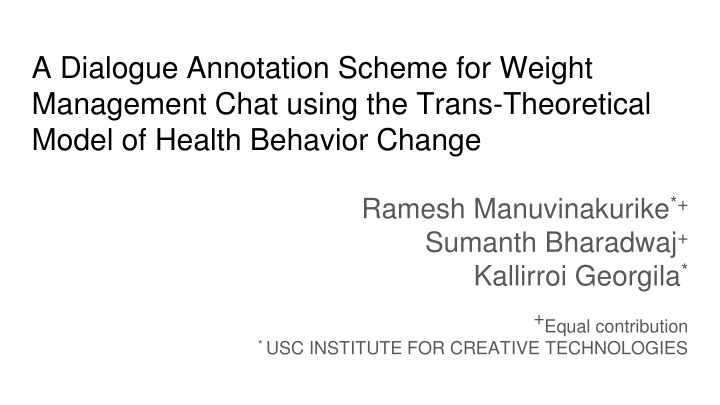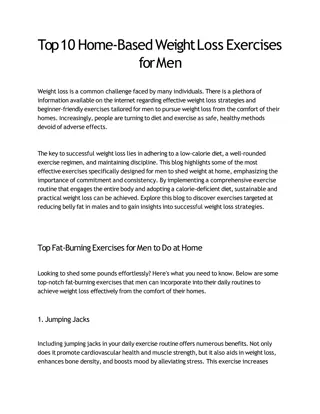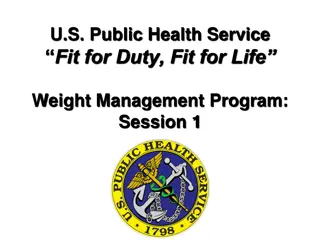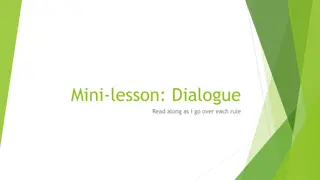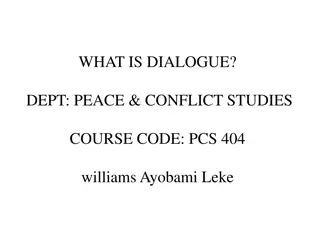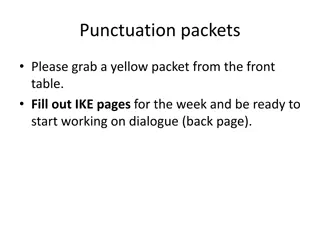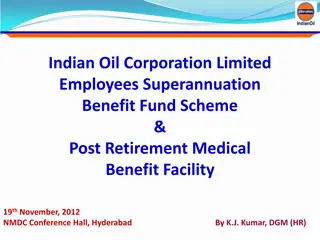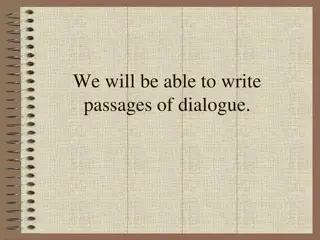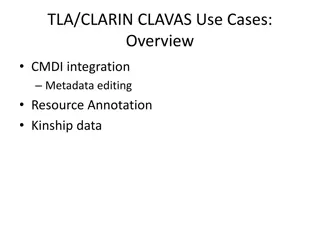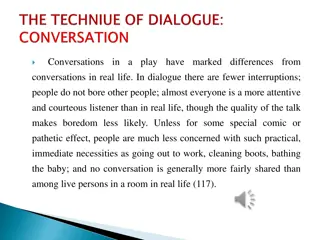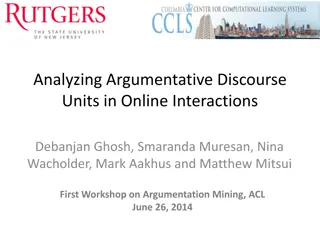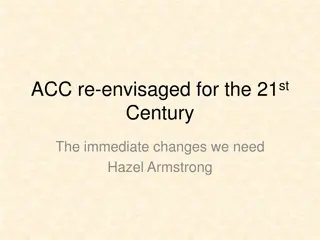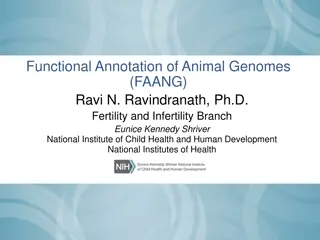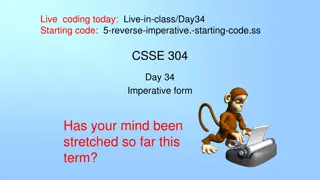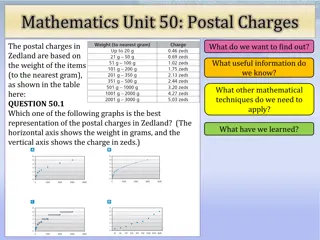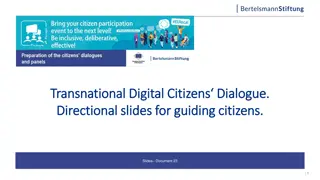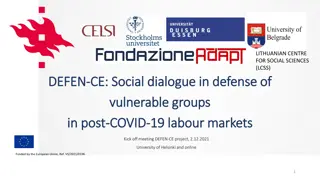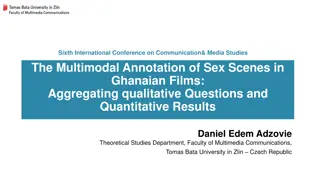Dialogue Annotation Scheme for Weight Management Chat
Obesity is a prevalent issue with individuals seeking ways to change their health behaviors. The article explores a dialogue annotation scheme using the Trans-Theoretical Model of Health Behavior Change. It delves into stages like precontemplation, contemplation, preparation, action, and maintenance, emphasizing the importance of tailored interventions for effective weight management.
Download Presentation

Please find below an Image/Link to download the presentation.
The content on the website is provided AS IS for your information and personal use only. It may not be sold, licensed, or shared on other websites without obtaining consent from the author.If you encounter any issues during the download, it is possible that the publisher has removed the file from their server.
You are allowed to download the files provided on this website for personal or commercial use, subject to the condition that they are used lawfully. All files are the property of their respective owners.
The content on the website is provided AS IS for your information and personal use only. It may not be sold, licensed, or shared on other websites without obtaining consent from the author.
E N D
Presentation Transcript
A Dialogue Annotation Scheme for Weight Management Chat using the Trans-Theoretical Model of Health Behavior Change Ramesh Manuvinakurike*+ Sumanth Bharadwaj+ Kallirroi Georgila* +Equal contribution * USC INSTITUTE FOR CREATIVE TECHNOLOGIES
Introduction Obesity has reached epidemic proportions. Am I fat? Is this a major issue? What do I do? How do I fix this? What changes can I make? How can I maintain once I change? Unhealthy lifestyles resulting from undesirable health behaviors are partly to blame. Many are willing to change their health behaviors but often don t know how.
Current methods Forums such as patientslikeme where users share personal experience. [difficult to tailor to specific needs] Tailored content delivered through videos. [expensive, not scalable] Use of innovative methods (e.g., agent dialogues, games, storytelling) has shown promise in research literature. Expert authored dialogues Games Storytelling (doesn t scale, not real-time) (expensive) (challenging to create/tailor stories per person)
Our approach Data driven dialogue! Crowd-source chat-based interaction data collection between remote participants. Collect conversation in a role-play scenario. Roles: Seeker: Role played by one person who seeks to change their health behavior. Helper: Role played by another person who helps the person seeking to change their health behavior by offering relevant tips and advice. Paired using crowdsourcing [HELPER CHAT] [SEEKER CHAT] me: .. helper: .. me: . seeker: .. me: .. seeker: .
Conversation example A sample conversation between the helper and the seeker. Shows the annotation performed at word-level. We re interested in the Stages of Change, Processes of Change and the Other label.
Trans-theoretical model of health behavior change (Prochaska & Velicer, 1997) Changes in health behavior happen in stages Precontemplation Contemplation Preparation Action Maintenance undesirable health behavior desirable health behavior
Trans-theoretical model of health behavior change (Prochaska & Velicer, 1997) Changes in health behavior happen in stages Precontemplation Contemplation Preparation Action Maintenance Change occurs through activities called Processes of Change Helping relationships Substance use Environmental re-evaluation, etc. undesirable health behavior desirable health behavior
Relation between Processes and Stages of Change Process of Change which have been shown to be effective in specific Stages of Change.
Other labels (Inspired from, Bunt et al., 2012) We also annotate other labels. These markers help identify the slots and values in the dialogue systems.
Classification experiments We build classifiers for predicting Stages of change Processes of change Other labels
Visit the poster! Thanks!
